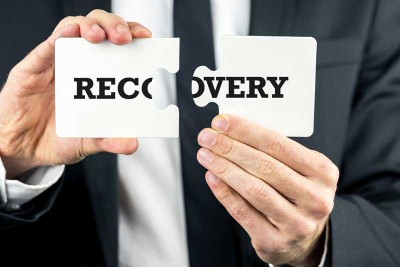Banking and Debt Recovery

Debt Recovery Tribunal(DRT) Litigation Support Services at DMT SOCIAL & CO. ADVOCATES :
An Overview -
Debt Recovery Tribunal (DRT) is a specialized court that handles cases related to recovery of debts due to banks and financial institutions.
DMT SOCIAL & CO. ADVOCATES, a leading law firm in Gujarat, Ahmedabad, offers the most experienced and professional DRT lawyers to provide litigation support services to their prospective clients at the Debt Recovery Tribunal(DRT), Ahmedabad. Here, we aim to discuss the various powers of DRT and the different kinds of litigation support services that DMT SOCIAL & CO. ADVOCATES can offer at DRT, Ahmedabad. We also aim to provide an overview of the two primary laws over which the Debt Recovery Tribunal(DRT) has jurisdiction, SARFAESI Act, 2002 and RDDBFI Act, 1993.
SARFAESI Act, 2002 and RDDBFI Act, 1993:
An Overview
SECURITISATION AND RECONSTRUCTION OF FINANCIAL ASSETS AND ENFORCEMENT OF SECURITIES INTEREST ACT, 2002 (SARFAESI ACT, 2002)
The Securitisation and Reconstruction of Financial Assets and Enforcement of Securities Interest Act, 2002 (SARFAESI Act, 2002) is an Indian law that allows banks and other financial institutions to auction the security interest created in residential/commercial properties of defaulters to recover loans. It does not apply to unsecured loans, loans below ₹100,000, or the remaining debt below 20% of the original principal as per Section 31 of SARFAESI Act, 2002. The act also allows the creation of asset reconstruction companies (ARCs) and allows banks to sell their non-performing assets to ARCs. Banks are also allowed to take possession of collateral property and sell it without court permission.
THE RECOVERY OF DEBTS DUE TO BANKS AND FINANCIAL INSTITUTION ACT, 1993 (RDDBFI ACT, 1993)
The Recovery Of Debts Due To Banks And Financial Institution Act, 1993 (RDDBFI Act, 1993) applies to the whole of India except J&K. It applies where the amount of debt due is not less than Rs. 10,00,000/-. Original Application for recovery of Debts can be filed only by Banks and Financial Institutions. Section 3 of the RDDBFI Act provides for the establishment of Debt Recovery Tribunals by the Central Government in consultation with the Chief Justice of the High Court. The Central Government can establish one or more Tribunals for each State or Union Territory or for a group of States or Union Territories, as it may deem fit. The Tribunal is headed by a Presiding Officer, who is appointed by the Central Government in consultation with the Chief Justice of the concerned High Court.
Powers of Debt Recovery Tribunal(DRT) -
The Debt Recovery Tribunal(DRT) has several powers vested in them, such as summoning and enforcing the attendance of any person and examining them on oath, requiring the discovery and production of documents, receiving evidence on affidavits, issuing commissions for the examination of witnesses or documents, reviewing its decisions, dismissing an application for default or deciding it ex-parte, directing the defendants to provide security sufficient to satisfy the debt, and many others. DMT SOCIAL & CO. ADVOCATES have a team of expert Debt Recovery Tribunal(DRT) lawyers who possess the skills of thorough research and exhibit all facts and data cohesively.
